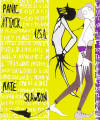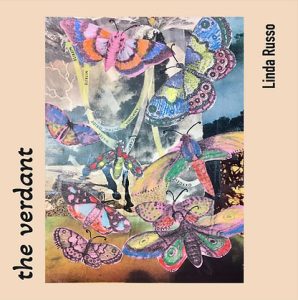Panic Attack, USA
In Panic Attack, USA, the debut collection of poetry by Nate Slawson, the poems rush full speed with wounded but open hearts into the wild and unpredictable future. “I call my heart Megaphone,” a speaker claims in the poem “July 4,” “because I sometimes feel / epic when I feel / with my complete circulatory / system.” Each poem in the collection seems to have speakers with these megaphone hearts, speakers who feel epic when feeling, who have the volume cranked to eleven 24/7.
In Panic Attack, USA, the debut collection of poetry by Nate Slawson, the poems rush full speed with wounded but open hearts into the wild and unpredictable future. “I call my heart Megaphone,” a speaker claims in the poem “July 4,” “because I sometimes feel / epic when I feel / with my complete circulatory / system.” Each poem in the collection seems to have speakers with these megaphone hearts, speakers who feel epic when feeling, who have the volume cranked to eleven 24/7.
The book is divided into four sections: “Teenage Sonnets,” “Panic Attack, USA,” “Essays for a Broken Heart,” and “Very Very Agoraphobia,” all of which are made up of short poems, with very few ever breaking onto a second page. “My Band Will Be Named Your Name,” a nine-page poem, is the one exception to the rule. Even though it’s a longer poem, it shares characteristics of the shorter pieces that are packed full of images and energy and nearly bursting at the seams. Slawson shares the hyperbolic enthusiasm of his contemporaries Matt Hart and Nate Pritts. In “You Are Lunch Hour Revenge Therapy,” the speaker says:
I ache
for you in spite of you & me &
human fucking error I love you
pill-crush & propeller sleep I
love you kill switch & dirty movies
every morning I rasp for you &
this is the longest I’ve ever been
window shopping for a new face.
These are fast poems that seem to get even faster as the book goes on. In the final two sections, the author hardly sees a need for punctuation, with most poems—after a cascade of lines and images—simply ending with a final period. The enjambment of the lines creates a run-on effect, both dazzling and dizzying as the distinction between one thought and the next becomes blurred.
Panic Attack, USA is comprised of love poems for the damaged, and for those who will nod in appreciation to mentions of bands like Jawbreaker, Afghan Whigs, and Galaxie 500—the two are not mutually exclusive. The book opens with three epigraphs that should be telling: one is from the great New York School poet Frank O’Hara, one is from the movie Lost in Translation, and the last, from Superchunk, asks: “When will our fucking hearts cease to riot?” In the introduction to the book, Peter Markus writes: “These are poems that tell us what it means to be alive…they shake their fists in our face and demand that we wake up.” And he’s right. These poems demand we find our own megaphone hearts.





